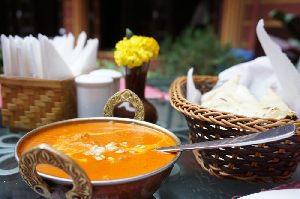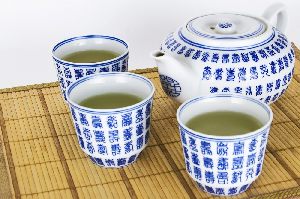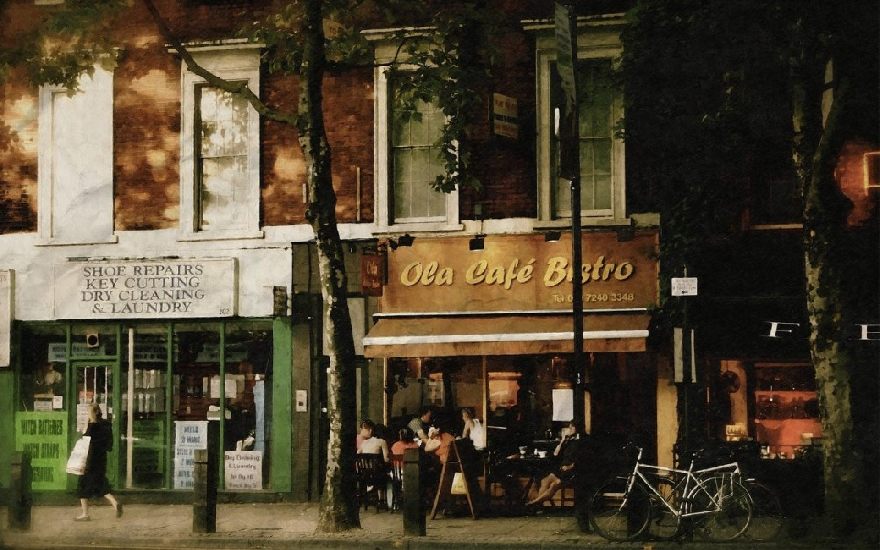Culinary Food in Bosnia and Herzegovina
Bosnian cuisine reflects a rich tapestry of influences from its diverse cultural heritage, including Ottoman, Austro-Hungarian, and Balkan traditions. Here are some notable culinary delights from Bosnia and Herzegovina:
1. Ćevapi: Often considered Bosnia's national dish, Ćevapi are small, grilled minced meat sausages, typically made from a mix of beef and lamb. They're usually served with flatbread (somun), diced onions, and a side of sour cream (kajmak).
2. Burek: A popular pastry filled with meat, cheese, or spinach. It's made from thin layers of dough and usually served hot, often as a breakfast or snack item. Burek is widely available and beloved throughout the region.
3. Sarma: Cabbage rolls filled with a mixture of minced meat, rice, and spices, cooked in a tomato-based sauce. Sarma is a traditional dish often served on special occasions or during winter months.
4. Bosanski Lonac: Translating to "Bosnian pot", this hearty stew consists of various meats (usually beef and lamb) and vegetables, cooked slowly in a single pot. It's a comforting and flavorful dish, perfect for gatherings and celebrations.
5. Pita: A type of savory pie, similar to burek, but with various fillings such as potatoes, pumpkin, or cheese. Pita is a versatile dish enjoyed throughout Bosnia and Herzegovina, often accompanied by yogurt.
6. Bosnian Coffee: Bosnian coffee is a traditional method of preparing and serving coffee, similar to Turkish coffee. It's strong and served in small cups accompanied by Turkish delight or other sweets.
7. Klepe: Dumplings filled with minced meat and served with a sauce made from sour cream, garlic, and paprika. Klepe are a comfort food often enjoyed as a main course.
8. Tufahija: A traditional Bosnian dessert made from poached apples stuffed with walnuts, sugar, and spices, then topped with whipped cream. Tufahija is a delightful and refreshing treat, especially popular during the summer months.
9. Rakija: While not a food, rakija is a strong fruit brandy that's an integral part of Bosnian culinary culture. It's often served as a digestif or a welcoming drink for guests.
Bosnian cuisine offers a diverse range of flavors and textures, reflecting the country's cultural and historical influences. Whether you're indulging in street food or enjoying a home-cooked meal, Bosnia and Herzegovina has something delicious to offer for every palate.
Sweets
Bosnia and Herzegovina also boasts a variety of delectable sweets and desserts, often characterized by their rich flavors and use of ingredients like nuts, fruits, and honey. Here are some popular Bosnian sweets:
1. Baklava: This sweet pastry is made from layers of filo dough filled with chopped nuts (usually walnuts or pistachios) and sweetened with syrup or honey. Baklava is a beloved dessert enjoyed throughout the Balkans and the Middle East.
2. Hurmasica: Also known as "Tulumba," this dessert consists of fried dough soaked in syrup, often flavored with lemon or rose water. Hurmasica is typically shaped into small cylindrical pieces and has a crunchy exterior with a sweet, syrupy interior.
3. Tufahija: As mentioned earlier, Tufahija is a traditional Bosnian dessert featuring poached apples stuffed with a mixture of walnuts, sugar, and spices, then topped with whipped cream. It's a refreshing and indulgent treat, especially during warmer months.
4. Šampita: This light and fluffy dessert is made from layers of meringue topped with a cream filling, often flavored with vanilla or lemon. Šampita is a popular choice for celebrations and special occasions.
5. Kadaif: Similar to baklava, kadaif is a pastry made from shredded filo dough filled with chopped nuts and sweetened with syrup or honey. It has a unique texture, with the shredded dough forming a crispy, golden crust.
6. Džem od Šljiva: Plum jam is a common sweet spread in Bosnia and Herzegovina, often enjoyed on bread or pastries. It's made by cooking ripe plums with sugar until thickened, resulting in a rich and flavorful jam.
7. Rahat Lokum: Also known as Turkish delight, rahat lokum is a confection made from gelatin, sugar, and various flavorings such as rose water, lemon, or mint. It's often dusted with powdered sugar or coconut flakes and enjoyed as a sweet treat.
8. Kompot od Sušenog Voća: This traditional Bosnian drink is made by simmering dried fruits such as apricots, figs, and plums in water with sugar and spices. It's served chilled and makes for a refreshing and naturally sweet beverage.
These are just a few examples of the delightful sweets and desserts you can enjoy in Bosnia and Herzegovina. Whether you have a sweet tooth or prefer something more refreshing, Bosnian cuisine has a dessert to satisfy every craving.
Drinks
Bosnia and Herzegovina offers a range of traditional and popular beverages that complement its rich culinary heritage. Here are some noteworthy drinks:
1. Rakija: This potent fruit brandy is a staple in Balkan countries, including Bosnia and Herzegovina. It's typically made from fermented fruits like plums (šljivovica), grapes (loza), or pears (kruškovača). Rakija is often served as a digestif or offered as a welcoming drink to guests.
2. Bosnian Coffee: Bosnian coffee, similar to Turkish coffee, is an integral part of Bosnian culture. It's prepared by boiling finely ground coffee beans with water and sugar in a special pot called a džezva. The coffee is served in small cups and often accompanied by a glass of water and Turkish delight.
3. Salep: This warm, creamy beverage is made from the powdered tubers of certain orchid species mixed with milk, sugar, and spices like cinnamon. Salep has a unique flavor and is enjoyed during cold winter months as a comforting drink.
4. Mineral Water: Bosnia and Herzegovina is known for its natural mineral springs, which produce high-quality mineral water. Brands like Sarajevski kiseljak and Bihaćki kiseljak offer refreshing carbonated and non-carbonated mineral water sourced from the country's pristine springs.
5. Herbal Teas: Various herbal teas are popular in Bosnia and Herzegovina, often enjoyed for their soothing properties and health benefits. Common herbal teas include chamomile (kamilica), mint (nana), and sage (žalfija), which are served hot or cold depending on preference.
6. Šerbe: This traditional Bosnian drink is made from a combination of fruit syrups (such as raspberry or cherry) mixed with water and sugar. It's a refreshing and sweet beverage, perfect for hot summer days.
7. Juices and Soft Drinks: Bosnian supermarkets and cafes offer a wide range of fruit juices, sodas, and soft drinks from both domestic and international brands. Popular choices include natural fruit juices like orange, apple, and pomegranate, as well as carbonated beverages like Coca-Cola and Fanta.
8. Beer: Bosnia and Herzegovina has a growing craft beer scene, with several local breweries producing a variety of beers ranging from lagers to IPAs. Commercial brands like Sarajevsko, Preminger, and Nektar are also widely available and enjoyed by locals and visitors alike.
These drinks represent just a sampling of the diverse beverage offerings in Bosnia and Herzegovina, reflecting the country's cultural, geographical, and culinary influences.














